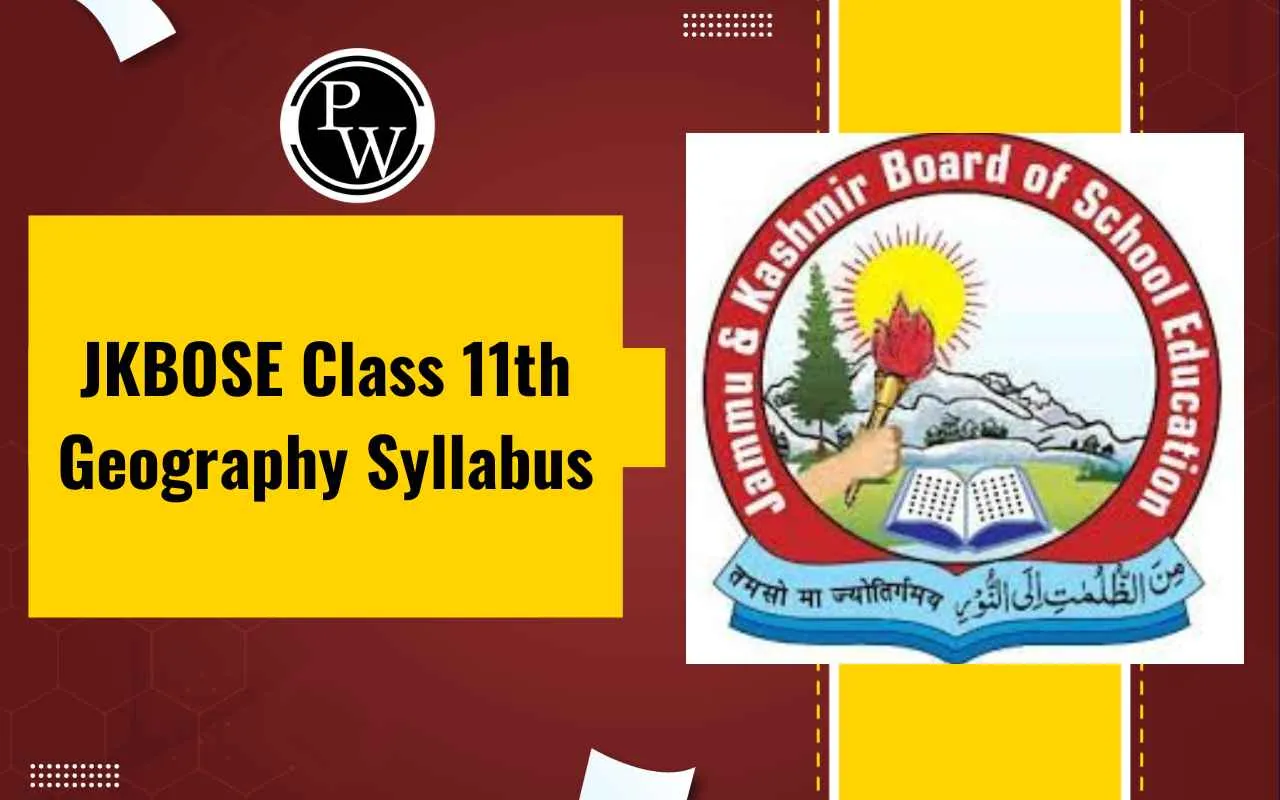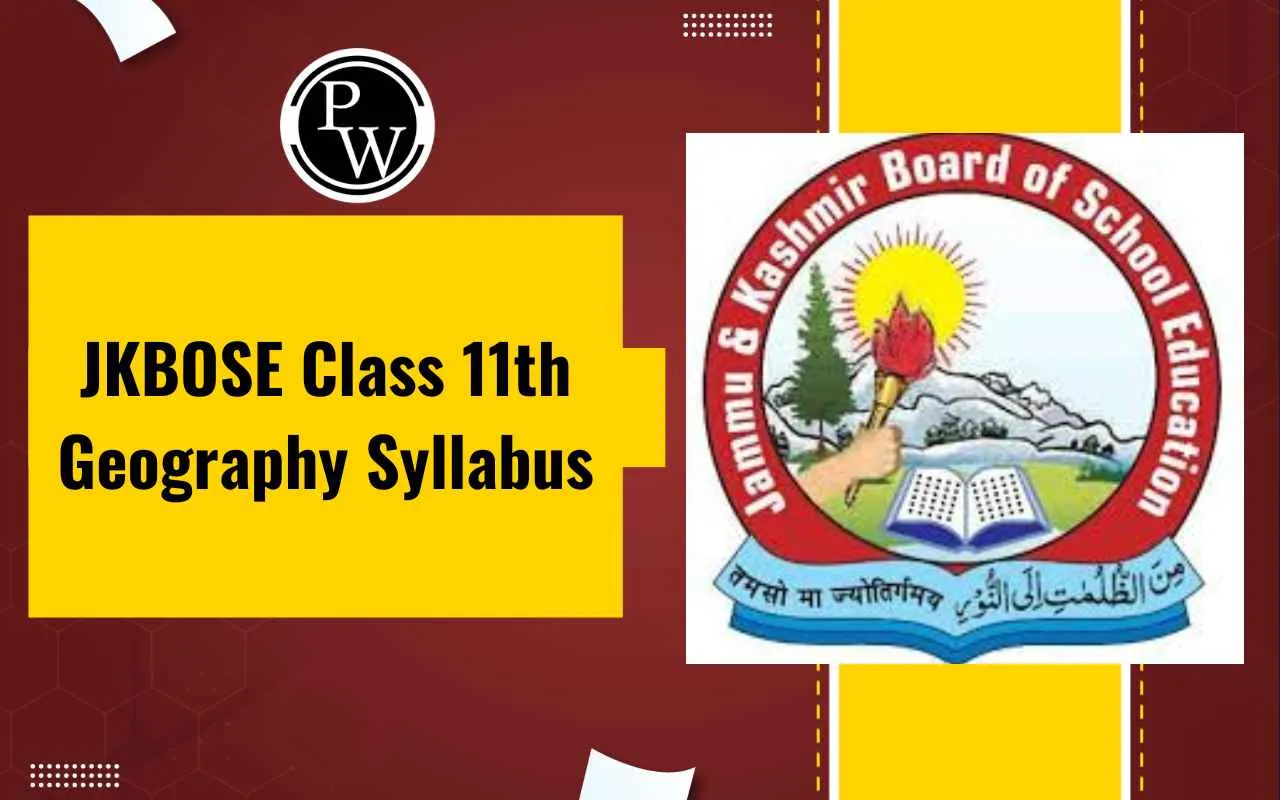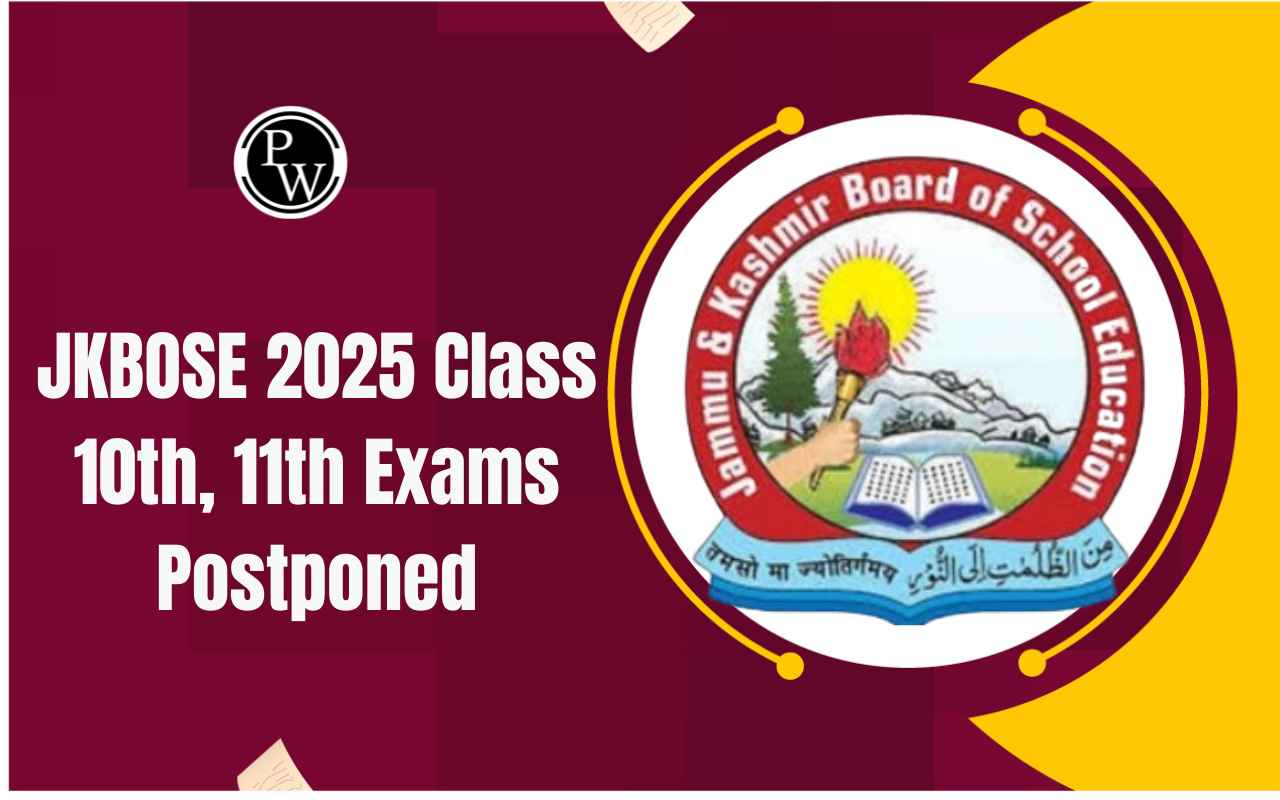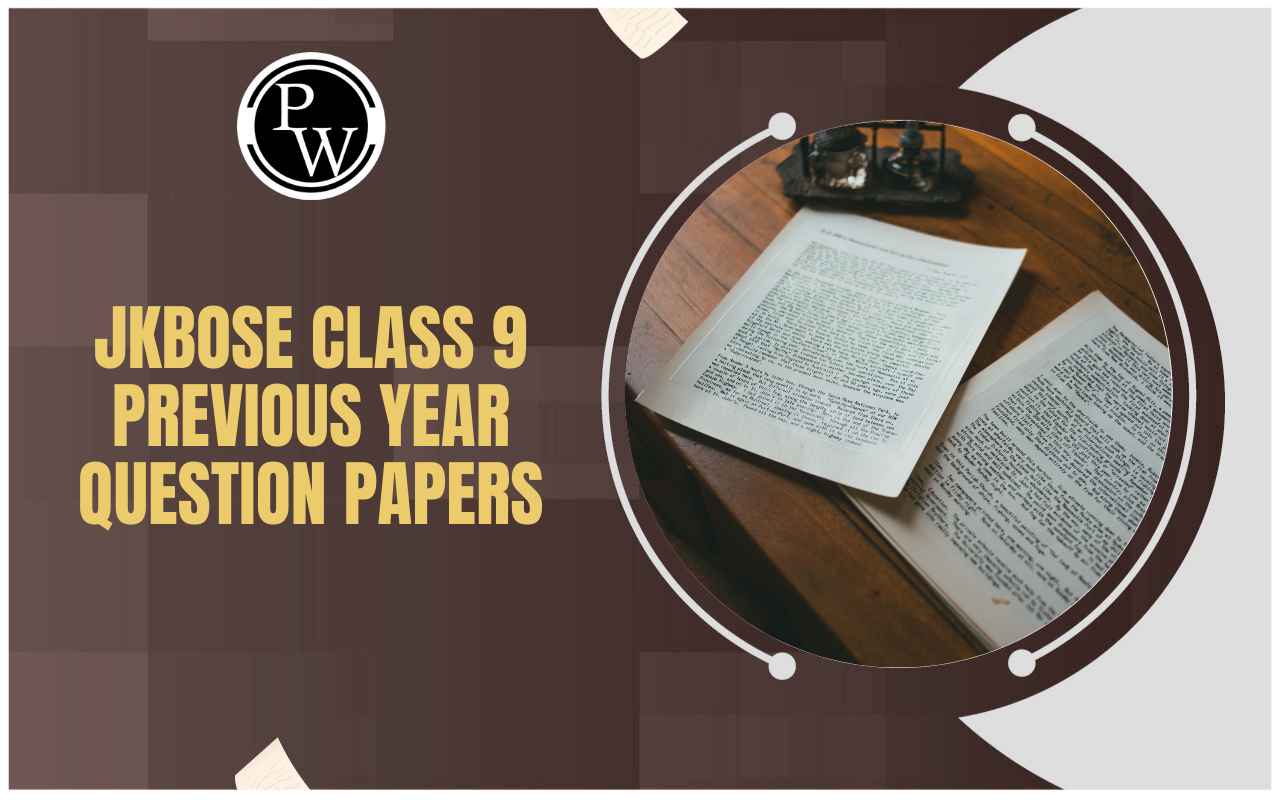

JKBOSE Class 11th Geography Syllabus 2025: The Jammu and Kashmir Board of School Education (JKBOSE) conducts the board exams for Class 11th as well in order to prepare students for Class 12th. The board exams are conducted for all the streams and subjects.
A combined syllabus for all the subjects is released on the official website of JKBOSE Board jkbose.nic.in. The Geography syllabus for Class 11th allows students to build a strong foundation in geographical concepts, encouraging them to understand the subject thoroughly.
It includes all the important topics in physical and human geography, giving students a comprehensive structure to prepare well.
JKBOSE Class 11th Geography Syllabus 2025 Highlights
The JKBOSE conducts board exams for Class 11th as well, making it important for students to understand the concepts thoroughly and prepare well for the exams. The syllabus includes all the important details regarding the exam. Below here are the highlights of JKBOSE Class 11th Geography Syllabus 2025:
|
JKBOSE Class 11th Geography Syllabus 2025 |
|
|
Conducting Body |
Jammu and Kashmir Board of Secondary Education (JKBOSE) |
|
Academic Year |
2024-25 |
|
Official Website |
|
|
Subject Name |
Geography |
|
Mode of Examination |
Written Exam (Pen and Paper Mode) |
|
Time Duration of the exam |
3 hours |
|
Types of Questions in the paper |
HOTS, Objective/MCQs, very short answer, short answer, and long answer questions |
JKBOSE Class 11th Geography Syllabus 2025 Exam Pattern
The JKBOSE Class 11th Syllabus 2025 Exam Pattern must be taken into consideration by the students to prepare for the Class 11th board examination. The exam pattern provides an overview of the marking scheme, types of questions, and duration of the exam.
Understanding the exam pattern helps students to plan their study schedule effectively and focus on important topics. Here’s the exam pattern given below:
|
JKBOSE Class 11th Geography Syllabus 2025 Exam Pattern |
|||||
|
Section |
Question Type |
Marks per Question |
Number of Questions |
Total Marks |
Word Limit |
|
A |
Objective/Multiple Choice Questions |
1 |
10 |
10 |
– |
|
B |
Very Short Answer Type Questions |
2 |
9 |
18 |
20 to 30 words |
|
C |
Short Answer Type Questions |
3 |
9 |
27 |
100 to 150 words |
|
D |
Long Answer Type Questions (with internal choice) |
5 |
3 |
15 |
150 to 200 words |
JKBOSE Class 11th Geography Syllabus 2025 Download PDF
The combined syllabus for all the subjects is released by the Jammu and Kashmir Board of School Education (JKBOSE). Students can download the JKBOSE Class 11th Geography Syllabus 2025 in PDF format given below and even from the official website.
The syllabus includes detailed information about the units, topics, sub-topics, and the weightage assigned to each. Having the syllabus in PDF format allows students to access it anytime for reference while preparing for the board exam.
Download JKBOSE Class 11th Geography Syllabus 2025
Study without using the internet
JKBOSE Class 11th Geography Syllabus 2025 Marking Scheme
The JKBOSE Class 11th Geography Marking Scheme 2025 provides a structured assessment to evaluate both theoretical understanding and practical application of the students. The paper is divided into two parts:
-
Theory Exam – 70 Marks
-
Practical Work – 30 Marks (Internal: 10 Marks, External: 20 Marks)
This marking scheme ensures that students get a comprehensive knowledge of physical and Indian geography while also developing essential geographical skills through map work and analysis.
The theory part consists of two major sections i.e., Fundamentals of Physical Geography and India: Physical Environment, while the practical portion focuses on how the geographical tools and concepts work. The marking scheme is given below:
|
JKBOSE Class 11th Geography Marking Scheme 2025 |
|||
|
Part |
Unit Title |
Topics Covered (Summary) |
Marks |
|
A. Fundamentals of Physical Geography |
Unit I: Geography as a Discipline |
Geography as a science of spatial attributes, branches and importance of physical geography |
5 |
|
Unit II: The Earth |
Origin and evolution, interior, continental drift, plate tectonics, earthquakes, volcanoes |
5 |
|
|
Unit III: Land Forms |
Evolution of landforms, geomorphic processes: weathering, erosion, soils formation |
7 |
|
|
Unit IV: Climate |
Atmosphere structure, insolation, temperature, pressure systems, winds, precipitation, climate types, global warming |
13 |
|
|
Unit V: Water (Oceans) |
Hydrological cycle, submarine relief, ocean temperatures and salinity, tides and currents |
5 |
|
|
B. India–Physical Environment |
Unit VI: Introduction |
India’s location and spatial relations |
5 |
|
Unit VII: Physiography |
Structure and relief, drainage systems, physiographic divisions |
7 |
|
|
Unit VIII: Climate, Vegetation and Soil |
Indian weather and climate, monsoons, vegetation types and distribution, wildlife, biosphere reserves |
14 |
|
|
Unit IX: Natural Hazards and Disasters |
Causes, consequences and management of floods, droughts, earthquakes, cyclones, tsunamis |
9 |
|
|
Total |
70 |
||
The practical section is crucial in Geography as it develops the student's map-reading abilities, spatial understanding, and analytical skills. This section is divided into three parts:
-
Map Fundamentals: Understanding types of maps, scales, directions, and projections
-
Topographical and Weather Maps: Interpretation and analysis of terrain and climate patterns
-
Record & Viva: Based on students’ maintained work and oral understanding
|
Practical Section (30 Marks) |
|||
|
Unit No. |
Unit Title |
Details |
Marks |
|
I |
Fundamentals of Maps |
Types of maps, types of scales, construction of linear scales, measuring distances, direction finding, symbols, latitude, longitude, time, map projections (conical with one standard parallel and Mercator’s) |
8 |
|
II |
Topographic and Weather Maps |
Study of topographic maps (1:50,000 or 1:25,000), contour cross sections, identification of landforms (slopes, hills, valleys, waterfalls, cliffs), distribution of settlements |
9 |
|
— |
Practical Record Book & Viva-Voce |
Evaluation based on record maintenance and oral exam |
3 |
JKBOSE Class 11th Geography Syllabus 2025 Recommended Books
To avoid any confusion, the JKBOSE has also prescribed books that align with the official syllabus for Class 11th Geography. These books are published by NCERT and it will be helpful for students as it provides comprehensive explanations, and aligns with the board's academic framework.
The recommended books help students understand key geographical concepts, diagrams, case studies, and practical components. They also include exercises at the end of each chapter, which are useful for self-assessment and board exam preparation.
Here are the two books prescribed for JKBOSE Class 11th Geography:
-
Fundamentals of Physical Geography – Published by NCERT, New Delhi
This book covers the theoretical aspects of physical geography including Earth’s structure, landforms, climate, and oceans.
-
Practical in Geography – Published by NCERT, New Delhi
This book includes hands-on map work, weather map interpretation, and other geography-related practical exercises.
JKBOSE Class 11th Geography Syllabus 2025 Benefits
-
The JKBOSE Class 11th Geography syllabus 2025 is divided into clear parts i.e., Fundamentals of Physical Geography and India: Physical Environment. It ensures a balanced understanding of both global physical processes and India’s geographical diversity.
-
The board has allotted the marks to both written exam and practical exam to lay emphasis on conceptual clarity. Students will be able to develop both understanding and learn about map reading, weather analysis, and landform interpretation, making learning more engaging and application-based.
-
The marking scheme allows students to focus on units based on its weightage of marks. Important topics like Climate and Vegetation (14 marks) and Climate (13 marks), carry the highest marks and must be prepared well to score higher marks.
-
The inclusion of NCERT books in the curriculum allows students to understand every topic clearly without any confusion. It also follows the national academic standards which will benefit students in both board exams and competitive exams.
-
Topics such as natural hazards, global warming, and climate change help students build awareness of contemporary global issues. This will not only provide academic knowledge but also social consciousness to the students.
JKBOSE Class 11th Geography Syllabus 2025 FAQs
Is the class 11 syllabus released?
Does class 11th have board exams in JK Bose?
How can I download the syllabus for Class 11th?
What are the subjects for class 11 2025?
Is Hindi compulsory in class 11th?













